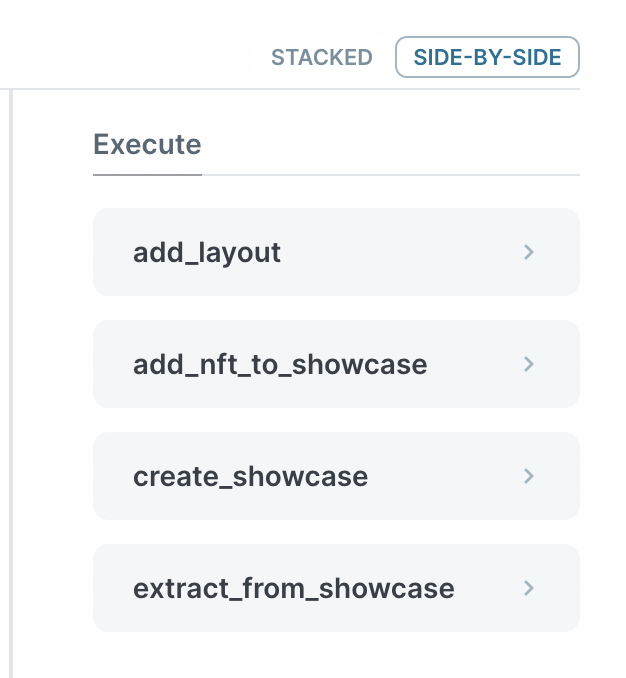In this lecture, we will talk about functions and strings in Sui Move.
You can see the public functions of any packages with explorer.

Function Visibility
Sui Move functions have three types of visibility:
-
private: the default visibility of a function; it can only be accessed by functions inside the same module
-
public: the function is accessible by functions inside the same module, and by functions defined in another module
-
public(friend): the function is accessible by functions inside the same module and by functions defined in modules that are included on the module's friends list.
Return Value
The return type of a function is specified in the function signature after the function parameters, separated by a colon.
A function's last line (of execution) without a semicolon is the return value.
Example:
public fun addition (a: u8, b: u8): u8 {
a + b
}
Entry Functions
In Sui Move, entry functions are simply functions that can be called by a transactions. They must satisfy the following three requirements:
-
Denoted by the keyword
entry -
have no return value
-
(optional) have a mutable reference to an instance of the
TxContexttype in the last parameterexample:
https://github.com/seapad-fund/sui-contracts/blob/master/nft/sources/nftbox_entries.move
Transaction Context
Entry functions typically have an instance of
TxContextas the last parameter. This is a special parameter set by the Sui Move VM, and does not need to be specified by the user calling the function.
The TxContext object contains essential information about the transaction used to call the entry function, such as:
-
the sender's address
-
the signer's address
-
the tx's epoch, etc.
Create the mint Function
We can define our minting function in the Hello World example as the following:
public entry fun mint(ctx: &mut TxContext) {
let object = HelloWorldObject {
id: object::new(ctx),
text: string::utf8(b"Hello World!")
};
transfer::transfer(object, tx_context::sender(ctx));
}
This function simply creates a new instance of the HelloWorldObject custom type, then uses the Sui system transfer function to send it to the transaction caller.
Example:
String
Move does not have primitive string type, but it has a package to handle it.
module examples::strings {
use sui::object::{Self, UID};
use sui::tx_context::TxContext;
// import dependency
use std::string::{Self, String};
// an Object with a string
struct Name has key, store {
id: UID,
/// Here it is - the String type
name: String
}
// create a new Name Object with raw bytes
public fun issue_name_nft(
name_bytes: vector<u8>, ctx: &mut TxContext
): Name {
Name {
id: object::new(ctx),
name: string::utf8(name_bytes)
}
}
}
The hello world example used string as well.
public entry fun mint(ctx: &mut TxContext) {
let object = HelloWorldObject {
id: object::new(ctx),
// Here
text: string::utf8(b"Hello World!")
};
transfer::transfer(object, tx_context::sender(ctx));
}
Reference